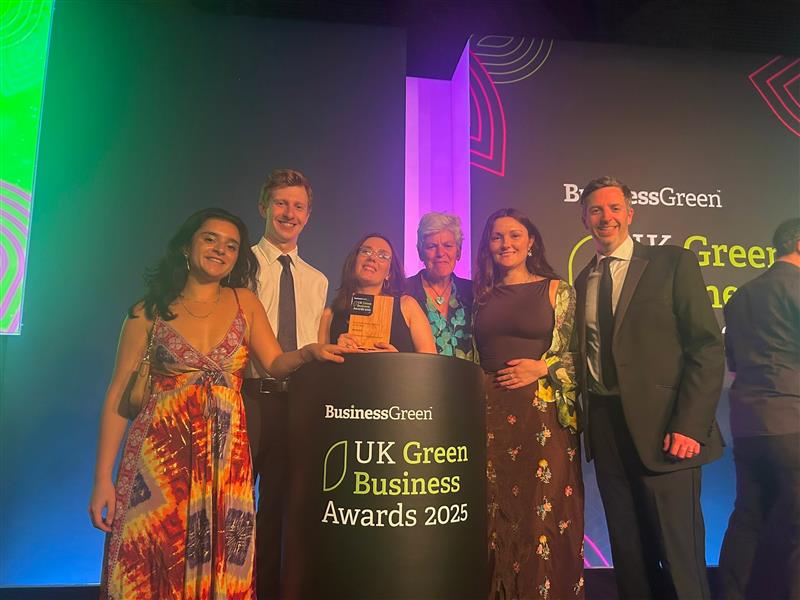LGBTQ & climate justice with Eddy Quekett

Happy Pride Month! As a communications agency focused on the environment and diverse representation, we are highlighting remarkable Change Makers who are advocating for our planet. With June being Pride Month, we are featuring a passionate climate activist and sustainability leader who is challenging traditional norms and building inclusivity for members of the LGBTQIA2S+ community within the climate movement.
The climate crisis is affecting all of us, but, like other underrepresented groups, the LGBTQIA2S+ community is disproportionately impacted. We were pleased to meet and interview Eddy Quekett, who recently ran a training workshop on Trans Climate Justice with the Greenhouse team. Their knowledge and advocacy experience on intersectional environmentalism, particularly for LGBTQ and climate justice and trans liberation are building towards a climate-safe future that is inclusive for all.
I’m Eddy Quekett (they/them), a queer climate justice activist and digital campaigner based in Leeds. My work focuses on building understanding and solidarity between movements working towards collective liberation, with a particular focus on the intersections between queer liberation and climate justice.
Recently, I have been involved with both the #StopRosebank and Reclaim The Power campaigns, fighting new and existing climate wrecking projects within the UK. I also develop and regularly deliver workshops on topics such as ‘Deconstructing Transphobia’ and ‘Finding Your Place in the Climate Movement’ for charitable organisations, social justice groups, and University societies.
What was your catalyst moment for taking action on the issues you care about?
I can’t pinpoint a single catalyst moment for me joining the climate movement, but I do remember the action that led me to delve into queer climate justice specifically. I had been involved in queer activism as a teenager, but during my time at university I had become much more engaged with various climate action groups.
On one particular occasion, a protest centering women was being organised – but there was a lot of confusion around who exactly was being invited to take part. Some outreach messages suggested that only women and non-binary individuals were welcome, while others implied that anyone who wasn’t a cis man could participate. I realised that, despite genuine efforts to be inclusive, many in the climate movement were unsure how to approach trans individuals and communities, let alone understand the specific issues we face.
It was this experience that led me to look further into the intersections of the climate crisis and queer liberation, and develop the first iteration of my workshop on Deconstructing Transphobia, specifically targeted towards building anti-oppressive movements.
What’s been your biggest challenge when it comes to communicating about the intersection between the climate crisis and queer inclusion?
Balancing the urgent need to address the climate crisis with the necessity of understanding its interconnectedness with other critical issues, such as queer liberation, is one of the most significant challenges I face in communicating about Queer and Trans Climate Justice. Often, the urgency to act on the climate crisis leads people to adopt a narrow focus, prioritising immediate action while overlooking the complex, systemic nature of our struggles.
This sense of urgency, while understandable, can inadvertently marginalise the queer voices and experiences crucial to building a truly intersectional and liberatory movement. Addressing the climate crisis isn’t just about reducing emissions and shutting down fossil fuel infrastructure – it requires dismantling the oppressive systems that perpetuate climate breakdown.
By highlighting how queer communities are disproportionately affected by climate breakdown, and how their resilience and activism are vital to addressing the climate crisis, we can build a more intersectional and powerful movement towards collective liberation.
Is there a moment where you have shifted your perspective or approach to your activism due to something you’ve learnt?
Last year I changed the way I approached the topic of inclusivity in my ‘Deconstructing Transphobia’ workshops, after reading Emma Dabiri’s book ‘What White People Can Do Next’. In the book, Dabiri explains that inclusion often means granting access to power within a destructive system. This reframing of inclusivity made me realise that I no longer wanted to teach workshop attendees how to include trans people in spaces that might be reproducing or enforcing systems of harm.
Instead, I shifted my focus to helping people recognise the ways in which performative inclusivity can harm trans people and communities, and what meaningful solidarity looks like. I placed greater emphasis on critically examining and transforming the structures and cultures within organisations and communities, aiming to create environments where trans people can genuinely thrive rather than just being superficially included.
What’s been your favourite approach / example you’ve seen during your career of communicating about the climate crisis?
I’m a big fan of subvertising – creating spoof advertisements for bus stops or billboards that draw attention to corporate greenwashing. One of my favourite examples is a spoof Shell advertisement by Darren Cullen which reads, “We’re changing the oceans into rainbows for LGBT+ pride” against the background of a colourful oil spill. Bringing humour into our climate communications, and then taking that out of our digital echo chambers and onto the streets, helps reframe how people view our movements and the corporations we’re challenging.
What’s something that you think should just change tomorrow?
Corporate sponsorship and involvement in queer events, particularly from fossil fuel companies and the banks that fund them, should end immediately. We cannot allow these destructive corporations to exploit queer joy and celebration to paint themselves as benevolent and progressive, while they continue to profit from the destruction of the planet we live on.
Fossil Free Pride and Culture Unstained do incredible work to challenge fossil fuel sponsorship of queer and other cultural events and venues. It’s vital that our community spaces remain authentic to the roots of queer liberation, free from the influence of entities that perpetuate environmental and systemic harm.
Game changers like Eddy Quekett play an essential role in addressing the climate crisis, ensuring a climate-safe future that is inclusive for everyone. Eddy’s efforts highlight the intersection between climate and queer movements, fostering a united approach to tackling these interconnected challenges. Through advocacy and education, Eddy promotes a more inclusive, equitable, and sustainable future for all. You can learn more about Eddy and their work on their website.
Check out who else we’ve spotlighted and their key role in fighting the climate crisis and protecting our environment in our blogs.
Sign up to our daily newsletter below to stay up-to-date with top climate headlines.


